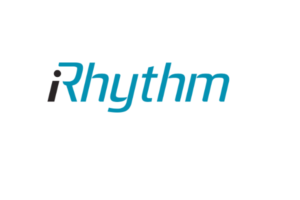 iRhythm Technologies has announced the publication of a new study in Nature Medicine showing expert-level detection of cardiac arrhythmias using a new deep learning, or artificial intelligence, approach for electrocardiogram (ECG) analysis across a variety of diagnostic classes.
iRhythm Technologies has announced the publication of a new study in Nature Medicine showing expert-level detection of cardiac arrhythmias using a new deep learning, or artificial intelligence, approach for electrocardiogram (ECG) analysis across a variety of diagnostic classes.
The findings come from a collaboration with the Stanford Machine Learning Group that has resulted in the development of a deep learning model capable of arrhythmia detection at a level comparable to a panel of expert cardiologists for a total of 12 output classes. The study is titled, “Cardiologist-Level Arrhythmia Detection in Ambulatory Electrocardiograms with Deep Neural Networks.”
The collaboration leveraged the iRhythm data science and clinical teams’ expertise in ECG analysis and the company’s proprietary and diversely labelled ECG data set to produce an arrhythmia detection algorithm delivering expert-level classification performance. To date, this is the only model published and shown to reliably detect and label 10 cardiac arrhythmias, as well as distinguish sinus rhythm and noise from artefact, for a total of 12 output classes, potentially giving clinicians a more comprehensive understanding of their patients’ heart rhythms. By applying these sophisticated algorithms to the vast amounts of data captured by continuous ECG monitors, this approach has the potential to increase the accuracy of physician diagnosis and improve the efficiency of expert-human ECG interpretation, so physicians can spend their limited time and resources focused on getting patients the right care.
“As powerful, deep learning algorithms become available for cardiac care, it is important for the medical community to become more discerning about the overall quality of the algorithms that power the analytical tools we use,” said Martin Maron, director of the Hypertrophic Cardiomyopathy Center at Tufts Medical Center, Boston, USA. “Not all algorithms perform equally and we need to educate ourselves on the sophistication and accuracy of those we rely on to drive our clinical decision-making. The results of iRhythm’s collaboration with Stanford is the first time an artificial intelligence model has been able to successfully detect and label these many arrhythmias, showing great promise for the future of arrhythmia diagnosis and care. An ongoing commitment to advancements in data analysis is critical to improving patient care.”
The study results represent the significant effort to evaluate algorithm performance compared to a set of board-certified practising cardiologists and referenced against a consensus committee of cardiology experts. The publication expands and validates the researchers’ previous findings around the performance of the algorithm, a 34-layer deep neural network, which learned from 91,232 ECG records collected from 53,549 unique patients using the Zio by iRhythm ambulatory continuous cardiac monitoring device. This is the first time a model was developed across this number of arrhythmia classes with a data set of this size.









